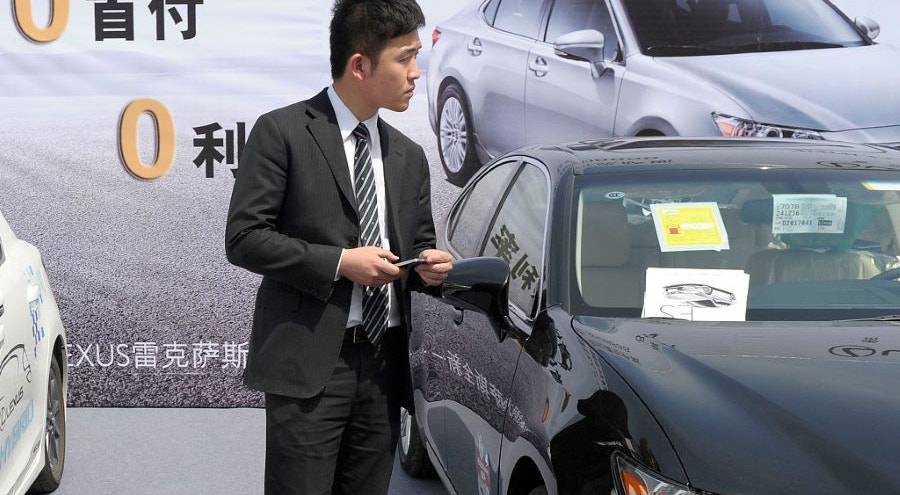
Key Points:
- Yixin to sell 49% stake in two-year-old joint venture to Qingdao Caitong
- Yixin’s auto financing business thrives amidst fluctuating Chinese car market, driven by electric vehicle demand
By Warren Yang
Reckless expansions into uncharted territories may result in fleeting gains, yet often culminate in disillusionment. Yixin Group Ltd. (2858.HK) seems keenly aware of the pitfalls of such missteps, with its recent choice to exit a fledgling joint venture straying from its original business focus.
Just after the year’s end, Yixin announced the divestment of its 49% stake in the two-year-old partnership with state-owned Qingdao Caitong Group. According to the Dec. 27 press release to the Hong Kong Stock Exchange, Yixin will offload its share to Qingdao Caitong for up to 280 million yuan ($39 million).
Yixin’s change of heart seems rooted in concerns that its state-owned partner sought to expand the venture’s scope beyond financial leasing services related to automobiles.
Qingdao Caitong “intends to expand its investment in a more diverse set of assets,” Yixin explained, noting that, unlike itself, Caitong is a state-owned enterprise. Consequently, the joint venture’s original purpose “no longer aligns.” Such divergences are not uncommon between joint venture partners but reflect a broader risk for private companies collaborating with SOEs in China.
China’s extensive network of SOEs faces sizable pressure to augment profits, especially as the financial standings of their often local government owners deteriorate. Restrained revenue from land sales amid a sluggish real estate market is a contributing factor. This necessitates local governments to push their SOEs to stimulate flagging economies, affected by the property downturn and Covid-19 restrictions.
In light of the financial strains on local governments, ratings agency Fitch relegated the outlooks for local government funding vehicles (LGFVs) in Qingdao and several other cities to “negative” last year. The downgrade cited the municipalities’ weakening creditworthiness and resistance to economic shocks.
Qingdao Caitong, established in 2020 by the government of the Northeastern port city, operates as a financial services company with a mandate to embody the development strategy of the Qingdao Municipal Communist Party Committee and municipal government, and fully implement major priorities, according to its website.
The joint venture between Tencent-sponsored Yixin and Qingdao Caitong generated approximately 183 million yuan ($26 million) in revenue in 2022, its inaugural full year. It also recorded a net profit of 31 million yuan. Judging by the venture’s net assets at the end of 2022, the net profit translates to a return on investments of about 5.8% for the partners.
Emphasis on Auto Financing
In spite of a commendable return rate for a young venture, it likely falls short of Qingdao Caitong’s cost of capital. Therefore, Caitong’s inclination to broadening the venture’s operations and lessening reliance on the auto market is understandable.
Conversely, Yixin’s reluctance to veer from its lane and concentrate on its forte in auto finance is quite comprehensible. Venturing into uncharted waters is always precarious, with innumerable instances of failure. Notably, the now-ailing real estate behemoth Evergrande’s foray into bottled water and cooking oil in 2014 culminated in disposal just two years later due to hefty losses. Evergrande’s recent bet on electric vehicles is also met with skepticism by investors.
Yixin’s preference to maintain focus is validated by the ascension of its core auto financing business. While China’s overall car market grapples with economic uncertainty, electric vehicles are defying the trend with robust sales growth, positioning homegrown automaker BYD and U.S. giant Tesla as market leaders. The EV surge is also bolstering the industry ecosystem for companies like Yixin.
Yixin’s total auto financing soared 30% year-on-year to 17.7 billion yuan in the third quarter of 2023, with loans for new EVs escalating over 200% to 4.2 billion yuan, as per the company’s latest quarterly business update issued early last month. Yixin’s revenue surged 16% in the first half of last year from a year earlier, with its net profit more than doubling.
Although Yixin endeavors to diversify revenue streams beyond car loan facilitation, all such forays are linked to the auto industry. Notably, it launched a software-as-a-service (SaaS) platform for auto financing-related technology applications.
Impressively, Yixin continues to thrive in auto financing even after enduring regulatory scrutiny on online lending that forced many similar fintech startups out of business in the pre-pandemic years. Originally, it offered direct auto loans but transitioned into the less-regulated role of facilitating financing between banks and consumers as the regulatory climate evolved.
Albeit lauded for sticking to its core competency, Yixin’s shares have been battered by years of regulatory challenges and pandemic turbulence. They currently trade at a price-to-sales (P/S) ratio of just 0.6, a fraction of their 2017 IPO valuation. Yet, it’s not alone, as valuations for other Chinese online lenders are similarly subdued. P/S ratios for consumer loan facilitators FinVolution and LexinFintech are also well below 1.
Following the announcement, Yixin’s shares initially rallied, climbing as much as 7%, before relinquishing most gains. Despite the transient rally, it may symbolize investor confidence in the company’s resolve to adhere to its core business. Furthermore, the potential for more upside exists if EV sales continue to propel profits.
This article is from an external contributor. It does not represent Benzinga’s reporting and has not been edited for content or accuracy.








